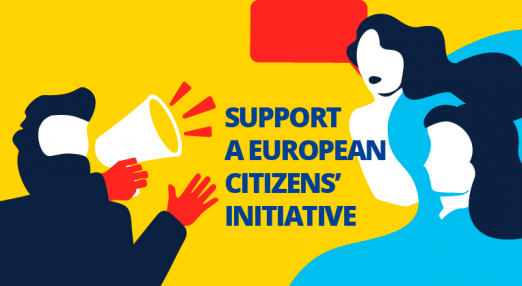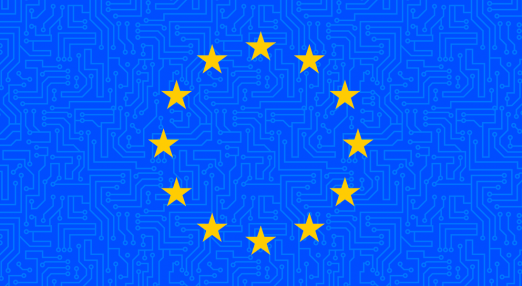Move fast and break Big Tech’s power
The surveillance-based business model of the dominant technology companies is based on extracting as much personal information and profiling as possible to target individuals, on- and offline. Over time, Big Tech corporations build a frighteningly detailed picture about billions of individuals—and that knowledge directly translates into (market) power.
Filter resources
-

Move fast and break Big Tech’s power
The surveillance-based business model of the dominant technology companies is based on extracting as much personal information and profiling as possible to target individuals, on- and offline. Over time, Big Tech corporations build a frighteningly detailed picture about billions of individuals—and that knowledge directly translates into (market) power.
Read more
-

Who, What, Why? Your guide to all things ECI! #ReclaimYourFace
Calling all digital rights heroes: EDRi needs your support! As part of the Reclaim Your Face campaign, we are running a European Citizens’ Initiative (ECI) to ban biometric mass surveillance practices in the EU. To be successful, we need to collect 1 million signatures. Read more to find out how we keep ECI data safe, and how your signature can make a big difference.
Read more
-

Romani rights and biometric mass surveillance
The rights of Romani people should be an important topic for anyone that cares about digital rights. In this blog, hear from experts in Roma, Sinti and digital rights about why facial recognition is an important issue (and what the rest of the digital rights community can learn), and check out the Reclaim Your Face campaign’s first ever resource in the Sinti language!
Read more
-

iSpy with my little eye: Apple’s u-turn on privacy sets a precedent and threatens everyone’s security
Apple has just announced significant changes to their privacy settings for messaging and cloud services: first, it will scan all images sent by child accounts; second, it will scan all photos as they are being uploaded to iCloud. With these changes, Apple is threatening everyone’s privacy, security and confidentiality.
Read more
-

Can the EU Digital Services Act contest the power of Big Tech’s algorithms?
A progressive report on the Digital Services Act (DSA) adopted by the Committee on Civil Liberties, Justice and Home Affairs (LIBE) in the European Parliament in July is the first major improvement of the draft law presented by the European Commission in December. MEPs expressed support for default protections from tracking and profiling for the purposes of advertising and recommending or ranking content. Now the ball is in the court of the leading committee on internal market and consumer protection (IMCO), which received 1313 pages of amendments to be voted in November. EDRi's member Panoptykon Foundation explores if the Parliament would succeed in adopting a position that will contest the power of dominant online platforms which shape the digital public sphere in line with their commercial interests, at the expense of individuals and societies.
Read more
-

Europe’s Data Retention Saga and its Risks for Digital Rights
It seems that despite several Court of Justice of the European Union (CJEU) decisions in this area, the data retention saga is unlikely to come to an end any time soon. After the invalidation of its previous instrument, the 2006 Data Retention Directive, the European Commission is currently trying to devise a new plan for the retention of traffic and location data for law enforcement and security purposes in the European Union (EU). The Commission stands at a crossroad: to intervene or not to intervene, that is the question.
Read more
-

EDRi joins coalition demanding that states implement a moratorium on the sale, transfer & use of surveillance technology
In this joint open letter, 146 civil society organisations and 28 independent experts worldwide call on states to implement an immediate moratorium on the sale, transfer and use of surveillance technology.
Read more
-

Joint open letter by civil society organizations and independent experts calling on states to implement an immediate moratorium on the sale, transfer and use of surveillance technology
In this joint open letter, 156 civil society organizations and 26 independent experts worldwide call on states to implement an immediate moratorium on the sale, transfer and use of surveillance technology.
Read more
-

Council of Europe’s Actions Belie its Pledges to Involve Civil Society in Development of Cross Border Police Powers Treaty
As the Council of Europe’s flawed cross border surveillance treaty moves through its final phases of approval, time is running out to ensure cross-border investigations occur with robust privacy and human rights safeguards in place. The treaty’s drafting process has been deeply flawed, with civil society groups, defense attorneys, and even data protection regulators largely sidelined.
Read more
-

The Data Governance Act – between undermining the GDPR and building a Data Commons
Compared to the DSA and the DMA, the DGA has received relatively little attention, both from the digital rights community and, seemingly, from industry stakeholders. So far, the discussion in the EP – where the Internal Market ( IMCO), legal affafirs (JURI) and civil liberties (LIBE) committees have issued opinions – has revealed relatively few clear faultlines.
Read more
-

All hands on deck: What the European Parliament should do about the DSA
After the European Commission’s proposal for a Digital Services Act (DSA) in December 2020, no less than seven committees in the European Parliament are now drafting their reports and opinions on the DSA. In parallel, member states are deliberating about the Council’s position, too. Yet, while the Commission has carefully tried to modernise the ageing rules of the E-Commerce Directive and make them fit for the platform economy, several of the committees’ draft reports propose—deliberately or not—to turn the DSA into a dystopian fundamental rights nightmare.
Read more
-

EDRi-gram, 14 July 2021
Whilst EU laws say that each of us is innocent until proven guilty, the prevalence of biometric mass surveillance practices across Europe flips this on its head. Each of us is treated as suspicious until ‘proven’ innocent, by often discriminatory and persecutory deployments of systems that never should have been rolled out in the first place.
Read more
